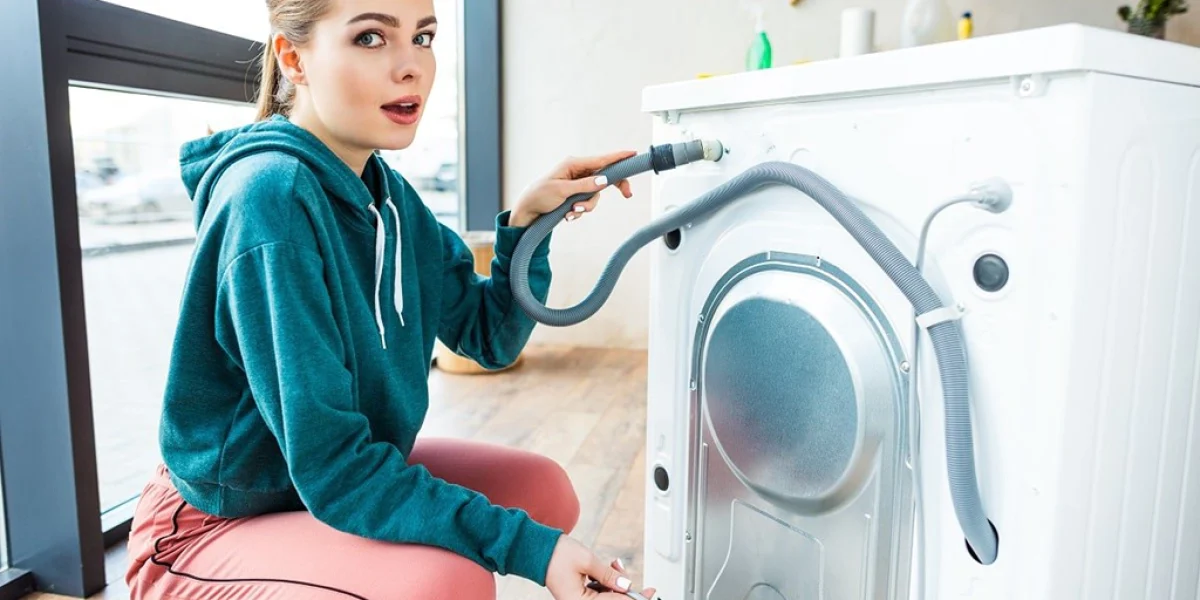Appliance breakdowns can be frustrating, prompting many homeowners to roll up their sleeves and attempt a do-it-yourself (DIY) repair. While the desire to save money and gain a sense of accomplishment is commendable, there are common mistakes people often make when trying to repair their appliances. In this article, we’ll explore these pitfalls and provide insights on how to avoid them.
Common Mistakes to Avoid
DIY appliance repair has gained popularity as an empowering solution for homeowners facing malfunctioning appliances. The allure of fixing a faulty refrigerator, washing machine, or oven without professional help is undeniable. Armed with online tutorials and a set of tools, many enthusiasts dive into the world of appliance repair with enthusiasm. However, there are hidden pitfalls that can turn a seemingly simple repair into a costly and time-consuming ordeal.
1. Misdiagnosing the Issue
One of the most prevalent errors in DIY appliance repair is misdiagnosing the problem. Jumping to conclusions based on symptoms alone can lead to unnecessary repairs, wasting time and resources. It is essential to conduct thorough research and diagnostics before attempting any fixes. Understanding the root cause ensures that the right solution is applied, preventing a cycle of trial and error.
2. Lack of Proper Tools and Equipment
Common DIY appliance repair mistakes often stem from a failure to diagnose the issue accurately. Many DIY enthusiasts underestimate the importance of having the right tools for appliance repair. Investing in a basic set of tools, such as multimeters, screwdrivers, and pliers, is essential. Not having the necessary equipment can result in incomplete or subpar repairs, leading to further complications down the line.
3. Disregarding Manufacturer Guidelines
Appliance manufacturers provide detailed manuals for a reason. Ignoring these guidelines can lead to disastrous outcomes. Whether it’s the type of detergent for a washing machine or the recommended temperature for an oven repair, following the manufacturer’s instructions is crucial. Failure to adhere to these guidelines may void warranties and cause additional damage to the appliance.
4. Rushing the Repair Process
Impatience can be detrimental when attempting appliance repair do it yourself. Rushing through the process may lead to oversights, incorrect assembly, or missed steps in the repair procedure. Take your time, follow each step meticulously, and refer to instructional guides to ensure a thorough and accurate repair.
5. Overlooking the Importance of Genuine Parts
Using generic or substandard replacement parts is a common mistake made in DIY repairs. While generic parts may seem like a cost-effective solution, they often lack the quality and durability of genuine components. Opt for original manufacturer parts to ensure compatibility and prolong the lifespan of your appliance.
Safety First in Appliance Repair
DIY appliance repair involves handling electrical components and potentially hazardous materials. Neglecting safety gear such as gloves, safety glasses, and even proper attire can lead to injuries. Prioritizing personal safety is non-negotiable. Always use the recommended safety gear and ensure the appliance is unplugged before commencing any repair work.
-
Lack of Electrical Knowledge
Working on appliances often involves dealing with electrical systems. A common mistake is underestimating the risks associated with electricity. DIY enthusiasts without adequate electrical knowledge may inadvertently expose themselves to shocks or cause electrical fires. It is imperative to educate oneself on basic electrical principles or, when in doubt, seek professional assistance.
-
Ignoring Gas Appliance Risks
For appliances powered by gas, overlooking safety precautions can have severe consequences. Gas leaks are a real threat, and mishandling gas appliances can result in explosions or carbon monoxide poisoning. DIY repairers should be well-versed in gas appliance safety measures and, when in doubt, consult a professional to handle such repairs.
DIY or Not? Recognizing When Expert Help is Needed
Complex Repairs Beyond Skill Level
While the appeal of DIY appliance repair is undeniable, there are instances where professional expertise is paramount. Complex issues, intricate electronic components, or integrated smart technologies may require a level of skill and knowledge beyond the average DIY enthusiast. Recognizing these limitations and calling in a professional can prevent exacerbating problems and ensure a swift and accurate resolution.
Lack of Spare Parts Availability
In some cases, a seemingly simple repair may hinge on the availability of spare parts. DIY repairers may find themselves stuck if the required components are not readily accessible. Professional technicians often have access to a broader range of spare parts, ensuring a smoother and more efficient repair process.
Time Constraints and Urgency
DIY projects can be time-consuming, especially for individuals with busy schedules. Urgent repairs, such as a malfunctioning refrigerator or a broken stove, may not be suitable for a leisurely DIY approach. Recognizing when time is of the essence and opting for professional assistance can prevent prolonged inconvenience and potential collateral damage.
Conclusion
DIY appliance repair can be a rewarding experience when done correctly, but avoiding common mistakes is crucial. By taking the time to diagnose issues accurately, prioritizing safety, using genuine parts, and seeking professional advice when needed, homeowners can increase the likelihood of successful repairs while avoiding costly errors. Remember, a well-informed and patient approach will go a long way in maintaining the functionality of your appliances. When in doubt, consulting with professionals in the field of professional appliance repair can provide invaluable insights and ensure that your appliances receive the expert care they deserve.



